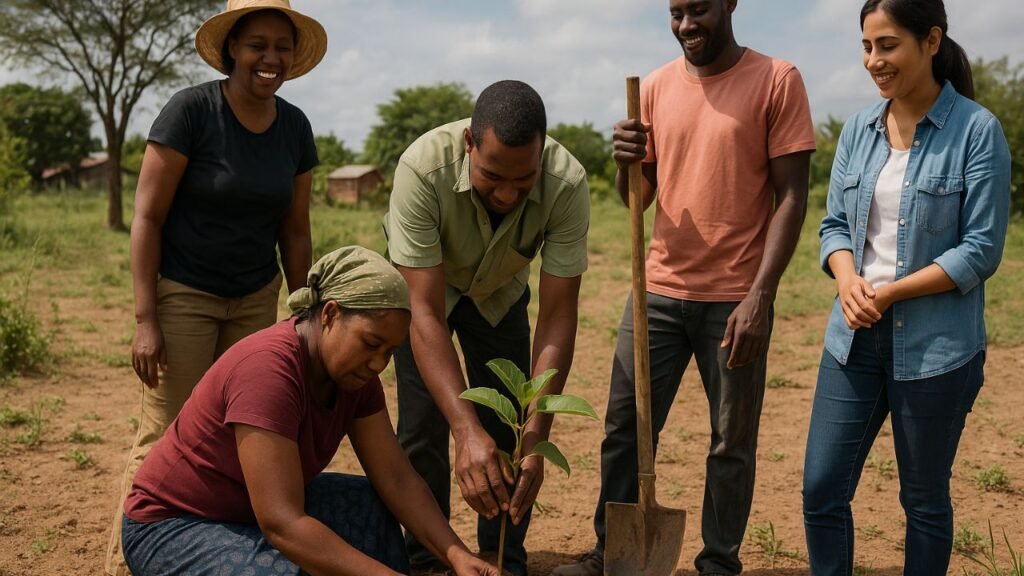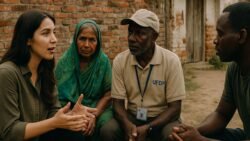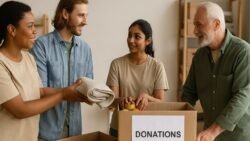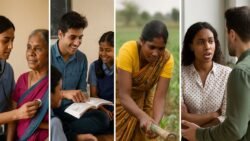UFDP Builds Resilient – UFDP (United Foundation for Development & Peace) is dedicated to building resilient communities by focusing on sustainable development, inclusion, and long-term growth. Through its grassroots-driven initiatives, UFDP works to empower marginalized groups, address inequality, and strengthen social structures that can withstand environmental, economic, and cultural challenges. The foundation emphasizes the importance of holistic development where education, health, and livelihood opportunities come together to create lasting impact. By partnering with local communities and international organizations, UFDP ensures that its projects are not only context-specific but also globally relevant. With rising concerns about climate change, food security, and social justice, the role of organizations like UFDP has become increasingly critical. Their projects echo the principles highlighted by the United Nations’ Sustainable Development Goals (SDGs) (source), ensuring that the communities they serve are better prepared for future crises. UFDP’s commitment to resilience means prioritizing people’s voices, addressing systemic gaps, and promoting equality as the foundation for sustainable progress.

Sustainable Development as a Pathway to Resilient Communities
Sustainability is at the core of UFDP’s mission, focusing on initiatives that provide long-term solutions rather than temporary relief. From renewable energy adoption to sustainable agriculture and resource-efficient practices, UFDP promotes systems that reduce dependency and foster independence. For example, initiatives around agroforestry and water conservation mirror successful models discussed by the Food and Agriculture Organization of the UN (source). By embedding such strategies into rural communities, UFDP ensures food security while conserving biodiversity. Moreover, their programs aim to enhance skills and provide tools for communities to generate income while maintaining ecological balance. This creates a cycle where livelihoods grow without compromising natural resources. Sustainable development under UFDP also aligns with global climate resilience frameworks, positioning communities to adapt better to floods, droughts, and economic downturns. In essence, UFDP views sustainability not just as environmental stewardship but as a comprehensive model for equity and economic strength.
Inclusive Growth Through Community-Centered Initiatives
At the heart of UFDP’s work is the principle of inclusion, where no group is left behind. Many vulnerable communities face systemic barriers to education, healthcare, and employment opportunities, perpetuating cycles of poverty. UFDP addresses these gaps by creating inclusive platforms where women, youth, and disadvantaged populations are empowered to lead change. Similar to the approaches advocated by UN Women (source), UFDP promotes gender equality by supporting female entrepreneurs, advocating for women’s rights, and improving access to resources. Beyond gender, UFDP champions inclusivity by integrating persons with disabilities into skill development programs and encouraging youth participation in decision-making processes. This ensures diverse voices shape community priorities. Such strategies not only reduce inequality but also strengthen collective resilience, as societies thrive when all members are active contributors. Through these inclusive models, UFDP creates empowered communities that value justice, equity, and shared prosperity as cornerstones of development.
Education and Capacity Building as Tools of Empowerment
One of the most effective ways to build resilient communities is through education and capacity development. UFDP invests in programs that equip individuals with the knowledge, technical skills, and problem-solving abilities necessary to thrive in today’s rapidly changing world. From vocational training to environmental education, the foundation focuses on practical learning that directly enhances livelihoods. Their efforts reflect strategies highlighted by UNESCO (source) in promoting education for sustainable development. By training youth in modern farming, renewable energy technologies, and digital skills, UFDP creates opportunities that reduce unemployment and migration pressures. Furthermore, UFDP’s focus on local knowledge ensures cultural heritage is preserved while integrating modern practices. These programs empower individuals to become agents of change within their own communities, multiplying the impact across generations. By placing education at the center of its mission, UFDP ensures that resilience is built not only through resources but also through the empowerment of human capital.
Health, Environment, and Social Justice Integration
Community resilience is incomplete without addressing health, environmental sustainability, and social justice together. UFDP recognizes that issues such as climate change, poor healthcare access, and inequality are deeply interconnected. Therefore, its projects adopt an integrated approach, combining healthcare awareness campaigns with clean water access, environmental restoration, and advocacy for human rights. Initiatives focusing on clean energy and reduced carbon emissions are closely aligned with insights from the World Health Organization (source) about the direct link between environmental health and human well-being. Additionally, UFDP supports rural clinics, nutrition programs, and awareness campaigns that reduce preventable diseases while strengthening overall resilience. Social justice is also central, as UFDP advocates for fair policies, legal support, and protection of vulnerable populations. By linking these dimensions, the foundation creates a holistic framework where people are healthier, ecosystems are restored, and justice prevails. This integrated model builds communities that are not only resilient but also equitable, inclusive, and future-ready.







